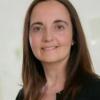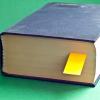
We are proud to announce that several IIASA researchers have been named on the annual Highly Cited Researchers list from Clarivate.
Clarivate, formerly a division of Thomson Reuters, unveiled its list of Highly Cited Researchers 2020 today. The highly anticipated annual list identifies researchers who demonstrated significant influence in their chosen field or fields through the publication of multiple highly cited papers during the past decade. Their names are drawn from the publications that rank in the top 1% by citations for field and publication year in the Web of Science, the world’s largest publisher-neutral citation index and research intelligence platform.
Around 6,000 researchers in 21 fields of the sciences, social sciences, and cross-field categories were selected based on the number of highly cited papers they produced over an 11-year period from January 2009 to December 2019. This is quite an elite group considering the number of research institutions and researchers around the world.
Several IIASA researchers from across the institute once again made the cut, some even in multiple categories. They are:
- Volker Krey from the Energy Program in the cross-field category.
- Yoshihide Wada from the Water Program in both the environment and ecology, and geosciences category.
- Oliver Fricko from the Energy Program in the cross-field category.
- Petr Havlik from the Ecosystems Services and Management Program in the social sciences category.
- Zbigniew Klimont from the Air Quality and Greenhouse Gases Program in the geosciences category.
- KeywanRiahi from the Energy Program in both the geosciences, and social sciences categories.
- Hugo Valin from the Ecosystems services and Management Program in the cross-field category.
A number of researchers not primarily associated with IIASA, but who nevertheless have strong ties to the institute also made the list, including:
- Joeri Rogelj from the IIASA Energy Program in the environment and ecology category.
- Shinichiro Fujimori a guest researcher in the Energy Program in the cross-field category.
- Klaus Hubacek an alumnus of the IIASA Water Program in the cross-field category.
- Michael Obersteiner from the Ecosystems Services and Management Program in the cross-field category.
- Andreas Richter a guest senior researcher in the Ecosystems Services and Management Program in the cross-field category.
Congratulations to all these IIASA researchers for this exceptional achievement!
David Pendlebury, senior citation analyst at the Institute for Scientific Information at Clarivate said: “In the race for knowledge, it is human capital that is fundamental and this list identifies and celebrates exceptional individual researchers who are having a great impact on the research community as measured by the rate at which their work is being cited by others.”
The full 2020 Highly Cited Researchers list and executive summary is available here.
News
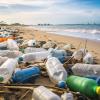
28 June 2024
Drowning in waste: pollution hotspots in aquatic environments
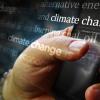
27 June 2024
What can social media tell us about public views on climate change?
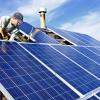
21 June 2024
